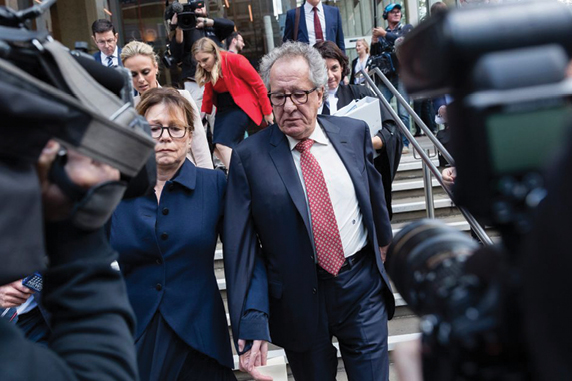Between 2014 and 2018 Australia earned the title of “world defamation capital”, recording 10 times as many libel claims as the UK on a per-capita basis.
But politicians are hoping to drop this unflattering label as NSW becomes the first jurisdiction in Australia to make changes to its defamation laws.
Long-awaited amendments to the Defamation Act 2005 passed the NSW upper house on 6 August, following a two-year review of the model national defamation laws led by NSW Attorney-General Mark Speakman.
The changes include introducing a new “serious harm threshold” aimed at weeding out minor or vexatious claims, a single publication rule for online publications, and a new public interest defence to protect responsible journalism.
NSW Attorney-General Mark Speakman told LSJ the changes were critical to stemming the surge of minor claims arising from comments made on social media and other digital publications, like online reviews.
“Since the laws were last reviewed in 2005, we’ve entered the social media age. We’ve seen the advent of Facebook, Twitter, Instagram and so on, which has rapidly increased the volume of commentary, and litigation that often concerns fairly minor comments and little damage,” Speakman said.
“Currently, there are 10 times the amount of defamation cases acted out in Sydney as there are in London.
“The majority of those are at the lower end of the scale. Typically, people getting upset about comments on Facebook that are probably better resolved over a cup of coffee and don’t really involve much in the way of damage or financial loss.”
Research by the University of Technology Sydney (UTS) Centre for Media Transition in 2018 found 51 per cent of defamation cases filed in NSW courts between 2013 and 2017 involved digital publications. In contrast, in 2007, the number was only 17 per cent.
The UTS research also found that, of 87 awards of damages between 2013 and 2017, more than half were under $100,000. An article by District Court Judge Judith Gibson, published in Australian Defamation Law and Practice, found 23 cases between 2007-2019 that awarded damages less than $20,000.
Litigants battling out these minor disputes in NSW courts have led some trial judges to note the costs of conducting defamation proceedings often exceeds the damages awarded.
At the other end of the damages scale, NSW has seen a series of record awards including an historic $2.9 million payout to actor Geoffrey Rush following allegations of sexual harassment published in The Daily Telegraph. The amendments passed in August seek to reduce such exorbitant pay days by introducing a new cap on damages for non-economic loss.
Speakman said the serious harm threshold would help to keep minor “backyard” claims out of court. But some legal practitioners remain dubious.
Defamation barrister Bruce McClintock SC has written, in a forthcoming article for LSJ‘s legal updates section, that the threshold is “highly likely to achieve nothing except to increase the costs of defamation cases”.
“How do you determine whether there is serious harm without carrying out some form of mini trial or leaving it to the trial itself?” he said.
Controversy has also surrounded a new public interest defence, which is modelled on UK law and aims to protect “responsible journalism” where the section 30 defence of qualified privilege has previously come up short. McClintock wrote that he believed its introduction is unnecessary.
“There is no deficiency in section 30. All it does is require a media defendant to establish that it acted reasonably,” said McClintock.
“It is extremely easy to tell, when advising a client to sue a media organisation, whether the defence will succeed or not. If it is competent journalism and balanced, the defence will succeed, and the case will not be brought. I have given such advice on many occasions.”
NSW has not yet set a commencement date for the new laws, preferring to wait for other jurisdictions to implement the same changes as part of the uniform system.
Speakman said the Council of Attorneys-General had “agreed that each jurisdiction would act as quickly as possible to introduce the Model Defamation Amendment Provisions in their respective Parliaments”.
“The sooner this is done, the earlier Australia can have consistent and modern defamation laws,” Speakman said.
Attorney-General Mark Speakman will speak alongside NSW Law Society President Richard Harvey and other experts at a Thought Leadership event about reforms to defamation law, held virtually on Monday 31 August.
To register and attend the event please click here.




